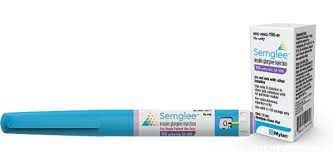- Bone Health
- Immunology
- Hematology
- Respiratory
- Dermatology
- Diabetes
- Gastroenterology
- Neurology
- Oncology
- Ophthalmology
- Rare Disease
- Rheumatology
The Top 5 Biosimilar Regulatory Stories of 2021
From the approval of the first insulin glargine biosimilar (Semglee) to the potential for extreme biosimilar competition in the adalimumab market, 2021's regulatory stories were popular with readers.
Metrics are a modern buzzword familiar to anybody tasked with maintaining a website. They represent traffic to and from the site, and they are a measure of how well your posts are doing and, overall, how successful your site is. The Center for Biosimilars® tracks these measures closely.
In 2021, many biosimilar regulatory stories were at the top of the list in terms of the site traffic they generated. Here are the top 5.
1. FDA Approves Semglee Insulin Glargine as First Interchangeable Biosimilar
In July 2021, the first insulin biosimilar was approved (Semglee, insulin glargine), referencing Lantus. Semglee was also approved as an interchangeable biosimilar, meaning it could be dispensed at the pharmacy counter as a substitute for the reference brand.
Semglee was originally approved under a different regulatory pathway in 2020, but its developers (Biocon Biologics/Viatris) thought that a biosimilar, interchangeable designation would improve marketability. Similarly, in March 2020, insulin products started being approved under the Biologics Price Competition and Innovation Act (BPCIA), a move that was thought to help stimulate competition and bring down prices of these important drugs.
As 2021 comes to a close, those actions are being put to the test. In October and November 2021, Express Scripts and Prime Therapeutics, both pharmacy benefit managers, moved Semglee to their preferred formularies, which offered the potential for exponentially greater use of this biosimilar product and savings. The year 2022 will test this value proposition.
2. The Difference Between an Interchangeable Biosimilar and One That Isn’t
The other of the 2 biosimilars that received an interchangeable designation in 2021 was Cyltezo (adalimumab), a Boehringer Ingelheim product that is expected to launch in 2023. Gaining an interchangeable designation requires that the pharmaceutical developer conduct a clinical switching study in which patients switch back and forth between the reference product and the biosimilar drug several times. In this way, it can be demonstrated that clinical outcomes will be the same whether patients stay on the reference drug, stay on the biosimilar, or switch between them during the course of therapy.
The interchangeable designation is not intended to convey the sense that an interchangeable is a more reliable drug or that its clinical safety and efficacy are higher than another biosimilar. There are concerns in the manufacturing community, however, that this is how interchangeables will be perceived and that an uneven playing field will develop as more of these interchangeable biosimilars appear.
3. Biosimilar mRNA Vaccines, Part 1: Regulatory Revolution!
Messenger RNA (mRNA) vaccines have come to prominence during the fight against COVID-19. The pandemic represented the first opportunity to put mRNA theory into practice and develop safe and efficacious vaccines quickly and effectively. With so many affected by COVID-19, the amount of clinical data made it possible to conduct the necessary evaluations with unprecedented speed and reliability.
In this well-read article, Sarfaraz K. Niazi, PhD, explains the utility of mRNA vaccines during the pandemic and posits that mRNA vaccines could one day be approved via the BPCIA regulatory pathway as biosimilars. Furthermore, it’s possible that mRNA vaccines will be subject to fewer exclusivity or patent obstructions, enabling biosimilars of reference vaccines to come to market with greater speed than they do now, Niazi explains.
This article was the first of a 2-part series. The second is available here.
4. Adalimumab Biosimilars Face Product Obsolescence Before Launch
In 2021, much concern was raised about the impact of patents for biologic reference products that extend the exclusivity for decades. A 2021 court ruling in a patent case between Samsung Bioepis and Amgen meant that Enbrel (etanercept) will have 30 years of product exclusivity before biosimilars can enter the market.
Similarly, adalimumab (Humira) patents are keeping biosimilars of this product off the US market, extending the sales revenues for Humira potentially well above the $170 billion already amassed by AbbVie, the reference drug company. The most recent adalimumab biosimilar approval was for Yusimry, which like the 6 adalimumab biosimilars before it, may not begin US commercialization until 2023, owing to settlements with AbbVie.
This much-read story examined the potential for approved biosimilars to lose their marketing value before they even come to market, owing to the march of time and originator product enhancements. In the case of adalimumab, biosimilar companies have been applying for interchangeable status after the fact and seeking to add high-concentration formulation status to their products, both enhancements that could be necessary to retain a marketing advantage.
5. FDA Grants Interchangeable Status for Boehringer Ingelheim’s Adalimumab Biosimilar (Cyltezo)
This story described the approval of Cyltezo as an interchangeable biosimilar, putting Boehringer Ingelheim in a potentially stronger position with respect to other adalimumab biosimilar developers.
Newsletter
Where clinical, regulatory, and economic perspectives converge—sign up for Center for Biosimilars® emails to get expert insights on emerging treatment paradigms, biosimilar policy, and real-world outcomes that shape patient care.


